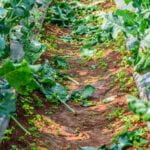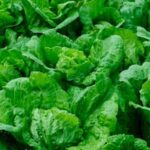Can you use redwood mulch on vegetable gardens? When it comes to nurturing a thriving vegetable garden, using mulch can offer numerous benefits. Mulch helps retain moisture, suppress weeds, and provide essential nutrients to the soil. In this article, we will explore the specific advantages of using redwood mulch in vegetable gardens and how it can support the growth and health of your crops.
Redwood mulch is known for its ability to retain moisture in the soil, which is beneficial for vegetable plants that require consistent hydration. Additionally, redwood mulch can help suppress weeds, reducing competition for nutrients and ensuring that your vegetables have access to the resources they need to flourish. Furthermore, redwood mulch can contribute valuable nutrients to the soil as it breaks down over time, supporting the overall health and fertility of your garden.
Understanding the specific requirements of your vegetable garden is crucial when considering the use of redwood mulch. Factors such as soil pH, water needs, and nutrient requirements all play a role in determining whether redwood mulch is suitable for your garden. By evaluating these considerations alongside the characteristics of redwood mulch, you can make an informed decision about whether this type of mulch is compatible with your vegetable plants.
Understanding Redwood Mulch
Redwood mulch is a popular choice for gardeners looking to improve the health and appearance of their vegetable gardens. This type of mulch is made from the shredded bark and wood of redwood trees, which are known for their durability and resistance to decay. Redwood mulch offers several benefits that can help support the growth of vegetable plants, making it a valuable addition to any garden.
One key advantage of using redwood mulch in a vegetable garden is its ability to retain moisture in the soil. By creating a barrier between the soil and the air, redwood mulch helps prevent water evaporation, ensuring that the roots of vegetable plants have consistent access to moisture.
This is especially beneficial during hot and dry periods when watering may be less frequent. Additionally, the organic matter in redwood mulch decomposes over time, further contributing to soil moisture retention by improving its structure and water-holding capacity.
In addition to retaining moisture, redwood mulch also serves as an effective weed suppressor in vegetable gardens. The thick layer of mulch inhibits weed growth by blocking sunlight from reaching weed seeds and seedlings, preventing them from germinating and establishing themselves in the garden soil.
This reduces the need for constant weeding, allowing vegetable plants to thrive without competition from unwanted vegetation. Furthermore, as redwood mulch breaks down, it releases natural compounds that can inhibit weed growth even further, providing long-lasting weed control for the garden.
Vegetable Garden Requirements
When it comes to vegetable gardens, there are specific requirements that need to be met in order for the plants to thrive. One key factor is soil pH, which refers to the level of acidity or alkalinity in the soil.
Most vegetables prefer a slightly acidic soil with a pH between 6.0 and 7.0. Redwood mulch can help support this requirement as it has a natural acidity that can help balance the pH of the soil, making it more favorable for vegetable growth.
In addition to pH levels, water requirements are another important consideration for vegetable gardens. Many vegetables require consistent moisture to ensure healthy growth and development. Redwood mulch excels in retaining moisture in the soil, reducing the frequency of watering needed for the vegetable garden. This ability is especially beneficial during hot summer months when water evaporation is high, allowing the soil under redwood mulch to stay moist for longer periods.
Nutrient needs also play a critical role in the success of a vegetable garden. Vegetables require an array of essential nutrients such as nitrogen, phosphorus, and potassium for healthy development.
Redwood mulch can support these nutrient needs by slowly decomposing and releasing small amounts of crucial nutrients into the soil over time. However, it is important to note that while redwood mulch can provide some nutrients, supplementing with additional fertilizer may still be necessary to meet the specific needs of different vegetables.
| Vegetable Garden Requirement | Support From Redwood Mulch |
|---|---|
| Soil pH | The natural acidity of redwood mulch can help balance soil pH |
| Water Requirements | Redwood mulch retains moisture in the soil and reduces watering frequency |
| Nutrient Needs | Redwood mulch slowly decomposes and releases nutrients into the soil |
Compatibility With Vegetable Plants
Redwood mulch is a popular choice for gardeners due to its numerous benefits, including its ability to retain moisture, suppress weeds, and provide nutrients to the soil. However, when it comes to using redwood mulch in vegetable gardens, it is essential to consider its compatibility with different types of vegetable plants.
Certain types of vegetable plants thrive when paired with redwood mulch. For example, root vegetables like carrots and beets benefit from the moisture retention properties of redwood mulch. Additionally, tomatoes, peppers, and eggplants can also thrive when grown alongside redwood mulch. The moisture-retaining qualities of redwood mulch are particularly beneficial during dry periods or in regions with hot summers.
While redwood mulch can offer several advantages for vegetable plants, there are also potential risks and drawbacks to consider. For instance, as redwood mulch decomposes, it can alter the pH level of the soil over time. This can pose challenges for certain vegetable plants that have specific pH requirements for optimal growth. Additionally, some gardeners may have concerns about the potential allelopathic effects of redwood mulch on certain plant species.
In considering whether to use redwood mulch in a vegetable garden, it is important to assess the specific requirements and characteristics of the vegetables being grown. Understanding the strengths and limitations of redwood mulch will allow gardeners to make an informed decision on whether this type of mulch is suitable for their specific vegetable garden needs.
| Types of Vegetable Plants | Compatibility With Redwood Mulch |
|---|---|
| Root Vegetables (carrots, beets) | Thrive with moisture retention properties |
| Tomatoes, Peppers, Eggplants | Benefit from moisture retention during dry periods |
Application and Maintenance
When it comes to applying redwood mulch to a vegetable garden, there are several key factors to consider in order to ensure its effectiveness and longevity. Proper application and maintenance of redwood mulch can make a significant difference in the health and productivity of your vegetable plants.
How to Apply Redwood Mulch
Before applying redwood mulch, it is important to prepare the garden beds by clearing away any existing weeds or debris. Once the soil is clear, spread a layer of redwood mulch evenly across the surface of the garden bed.
The ideal thickness for redwood mulch in a vegetable garden is around 2-3 inches. Avoid piling the mulch too close to the base of plants or creating thick layers, as this can lead to moisture retention issues and potential rotting of plant stems.
Frequent Monitoring and Replenishment
Throughout the growing season, it’s important to monitor the condition of the redwood mulch in your vegetable garden. As natural materials break down over time, you may need to replenish the mulch periodically to maintain an optimal thickness. This can help ensure that your plants continue to benefit from consistent moisture retention, weed suppression, and nutrient contribution provided by the mulch.
Mulch Maintenance Tips
To maintain the effectiveness of redwood mulch in your vegetable garden, consider aerating the mulch occasionally with a rake or cultivator to prevent compaction and promote airflow within the soil. Additionally, be mindful of any signs of mold or fungi growth on the surface of the mulch, as this can indicate excessive moisture or poor air circulation. Addressing these issues promptly can help preserve the health and vitality of your vegetable garden.
Overall, proper application and maintenance of redwood mulch in a vegetable garden can contribute significantly to soil health, plant growth, and overall crop yield. By following these guidelines and staying attentive to the condition of your garden beds throughout each growing season, you can effectively use redwood mulch on your vegetable gardens.
Environmental Considerations
When considering using redwood mulch in a vegetable garden, it is important to take into account the potential environmental concerns and considerations associated with this type of mulch. While redwood mulch offers numerous benefits for soil health and plant growth, it is essential to weigh its impact on the environment. Here are some key environmental considerations to keep in mind when using redwood mulch in vegetable gardens:
1. Sustainability: Redwood mulch is derived from the wood of redwood trees, which raises concerns about the sustainability of using this type of mulch. Redwood trees are slow-growing and can take decades to reach maturity, making their use as a source of mulch potentially unsustainable in the long term.
2. Impact on Soil Health: While redwood mulch can provide valuable nutrients to the soil as it breaks down, there is also a concern that it may alter the pH levels or nutrient composition of the soil over time. This can impact the overall health and fertility of the soil in a vegetable garden.
3. Harm to Beneficial Insects: Some types of mulch, including redwood mulch, can create an environment that is less hospitable to beneficial insects such as earthworms and microorganisms that play a crucial role in maintaining soil health and facilitating nutrient cycling.
To address these environmental concerns when using redwood mulch in vegetable gardens, gardeners can consider alternative options that are more sustainable and environmentally friendly. This may include exploring organic materials such as straw, hay, or wood chips, which offer similar benefits to redwood mulch without posing as many potential risks to the environment and ecosystem within the garden.
Ultimately, balancing the benefits of using redwood mulch with its potential environmental impact is an important consideration for those looking to cultivate thriving and sustainable vegetable gardens.
Alternative Mulching Options
Benefits of Alternative Mulching Options
When considering mulching options for vegetable gardens, it is essential to explore the benefits of alternative materials such as straw, hay, and wood chips. These organic materials can also provide similar benefits to redwood mulch, including moisture retention, weed suppression, and soil nutrient enhancement. Additionally, organic mulches can improve soil structure and promote a healthy ecosystem for beneficial microorganisms and earthworms.
Drawbacks of Alternative Mulching Options
While alternative mulching options offer numerous benefits, it is important to acknowledge their drawbacks as well. For instance, straw and hay may contain weed seeds that can lead to increased weed growth in the garden. Wood chips may take longer to decompose compared to redwood mulch, which means they require less frequent replenishment but do not provide nutrients to the soil as quickly.
Comparison With Redwood Mulch
When comparing alternative mulching options to redwood mulch specifically, it is crucial to consider factors such as cost, availability, decomposition rate, and overall impact on soil health. Redwood mulch may be more readily available in certain regions where redwood trees are abundant, while other organic materials like straw or wood chips could be more accessible in other areas.
Additionally, the nutrient content and pH level of redwood mulch should be compared with those of alternative materials to determine the best option for specific vegetable garden requirements.
Conclusion
In conclusion, redwood mulch can be a beneficial addition to vegetable gardens, providing numerous advantages such as moisture retention, weed suppression, and nutrient enrichment for the soil. Its ability to support the specific requirements of vegetable plants, such as soil pH, water needs, and nutrient levels, makes it a viable option for gardeners looking to enhance the health and productivity of their crops.
While redwood mulch can be compatible with many vegetable plants, it is important to consider any potential risks or drawbacks associated with its use. Some gardeners may have concerns about the impact on beneficial insects and overall soil health, so it is essential to carefully weigh these factors before deciding on whether to use redwood mulch in a vegetable garden.
Ultimately, while redwood mulch offers unique benefits for vegetable gardens, there are alternative mulching options available that may better suit the specific needs and preferences of individual gardeners. By exploring different organic materials such as straw, hay, and wood chips, gardeners can make informed decisions about which type of mulch is best suited for their vegetable garden based on factors such as sustainability, environmental impact, and overall effectiveness.
Frequently Asked Questions
What Mulch to Use in Vegetable Garden?
When selecting mulch for a vegetable garden, it is important to choose organic options such as straw, grass clippings, or shredded leaves. These types of mulch can help retain moisture, suppress weeds, and enrich the soil as they break down.
Can You Put Wood Chips Around Vegetable Plants?
Yes, wood chips can be used around vegetable plants as mulch. However, it’s important to use aged wood chips to prevent nitrogen depletion in the soil. Avoid using fresh wood chips that can compete with plants for nitrogen as they decompose.
Is Redwood Good for Gardens?
Redwood can be a good option for gardens due to its natural resistance to rot and decay. It can be used for raised beds or garden structures. However, it’s essential to make sure the redwood is sustainably sourced to minimize environmental impact.

If you’re looking to get into vegetable gardening, or are just looking for some tips on how to make your current garden better, then you’ve come to the right place! My name is Ethel and I have been gardening for years. In this blog, I’m going to share with you some of my best tips on how to create a successful vegetable garden.





